ChemEngDay 2019 - Highlights
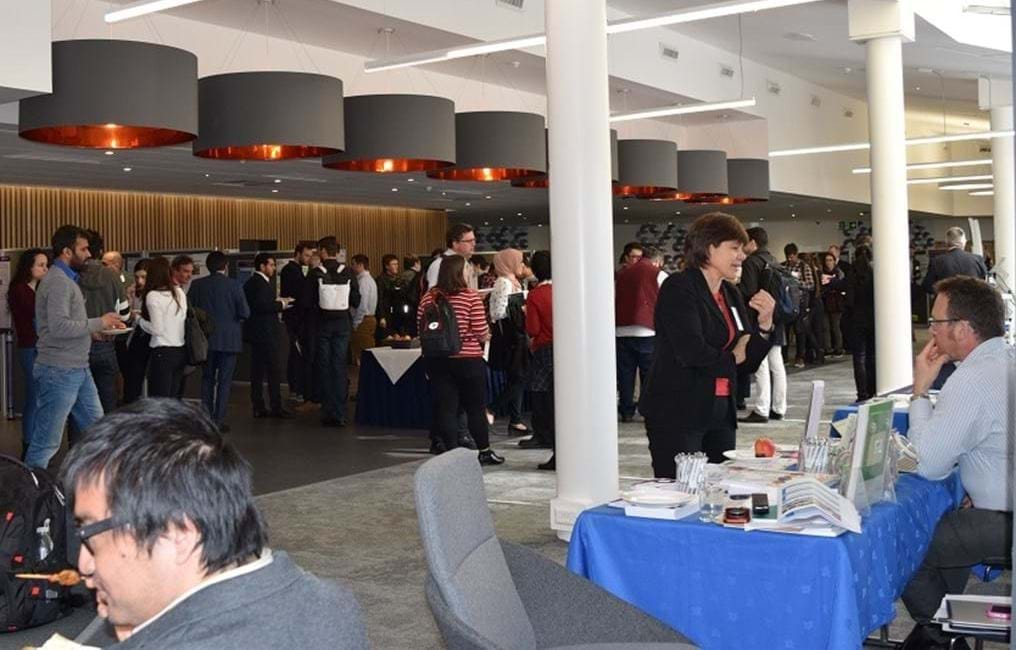
12th April 2019
Chemical engineers gathered at Heriot-Watt University in Edinburgh this week for the annual ChemEngDay conference. ChemEngDay was initiated to facilitate networking between chemical engineers in the academic community, and this year was the first time it has been held in Scotland.
116 chemical engineering academics, researchers, PhD students and industry experts came together to share insight and knowledge under the following themes:
- bioprocessing and biotechnology
- catalysis and novel materials
- energy
- particulate technology
- process modelling and simulation; and
- sustainable industry.
IChemE joined Aramco, Armfield, GUNT Technology and PA Hilton to exhibit at the conference and to speak to the academic community to learn more about their work and how these chemical engineers are helping provide solutions to global challenges.
Day 1 – Monday 8 April 2019
Principle and Vice Chancellor, Professor Richard Williams at Heriot-Watt University launched the conference in a welcome address to delegates. He spoke about Heriot-Watt’s work globally, with its 85 academic partners in 35 countries, as well as the diverse international framework it offers through its five campuses in the UK, Middle East and South East Asia. A framework they are calling “A pioneer in transnational education”.

Next to speak to the crowded lecture theatre was IChemE Chief Executive, Jon Prichard. For those who may have been unfamiliar with IChemE, he introduced what we do as a qualifying body and a learned society; working with our members to support their professional development and the transfer of knowledge to advance chemical engineering’s contribution worldwide for the benefit society.
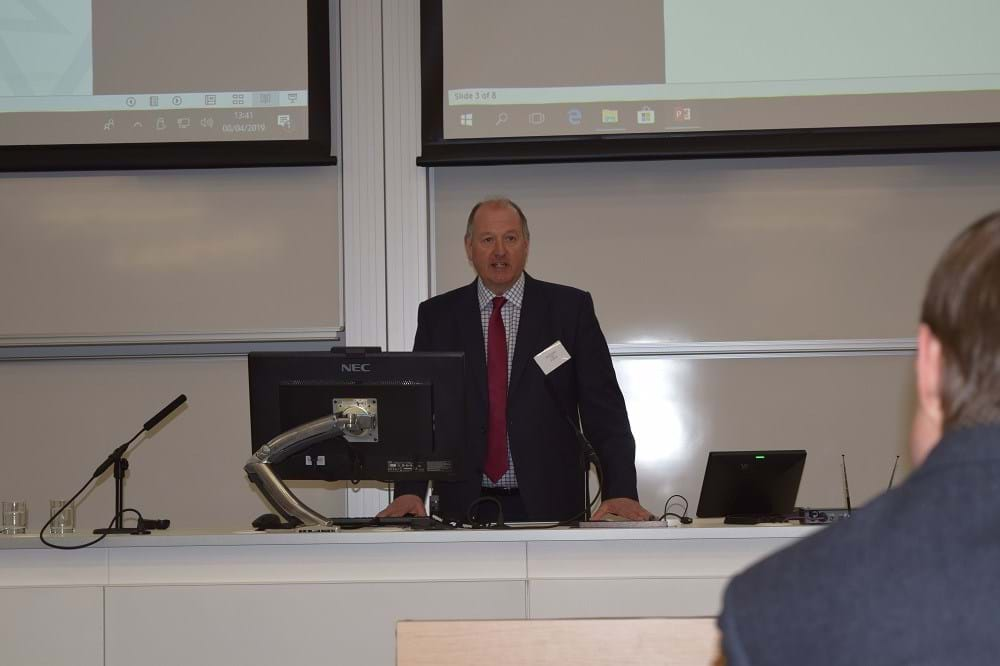
He explained that ChemEngDay is a notable event in IChemE’s calendar and is a key part of IChemE’s mission - to share knowledge. He highlighted the importance that everyone in the chemical engineering community continues to communicate and move forward together and embrace changes, particularly in this growing digital age, in order to strengthen the profession.
This digital theme continued in the first plenary presentation, which was delivered by IChemE Fellow Professor Hugh Stitt, a Scientific Consultant at Johnson Matthey. He gave a fascinating talk on the fourth industrial revolution, or ‘Industry 4.0’, entitled Chemical Engineering & the Digital Future.
He examined the many areas of a cyber-physical system and looked at what it will mean for the future of chemical engineering. With the ever-evolving digital revolution driving the move for “smart factories”, Stitt said there will be a demand for more chemical engineers to be data literate. “Industry 4.0 is not just digitisation of the factory, but a whole end-to-end concept,” he said.
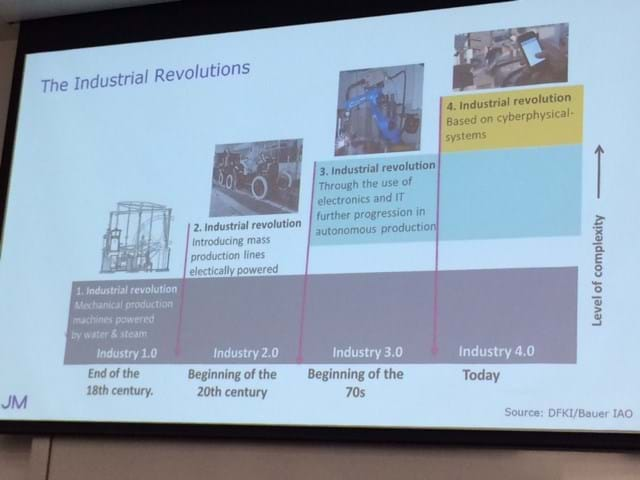
He determined that a more collaborative approach between chemical engineers and IT departments is required, so together they can understand what the computers do, to enable better processes, workflows and data structures.
Various parallel sessions ran throughout the day where delegates shared knowledge on several topics, including energy systems, generation and utilisation; particle systems; and modelling.
There was also a special session from IChemE's Early Career Researchers Forum, which raises awareness of opportunities available in industry and academic research for those at the early stage of their career. University College London (UCL)’s Dr Michail Stamatakis’ presentation, Next Steps for the PDRA – An Academic Perspective, provided insight and practical advice to anyone considering an academic career and what preparations should be undertaken, to what is expected once they commence their career.
To round off the day, a closing keynote was delivered by Tom Shields, Chair of Chemical Sciences, Scotland, who talked about the opportunity for chemical engineers to play a key role in finding solutions to help mitigate the effects of climate change.
In the evening, Heriot-Watt University hosted a conference dinner for all the delegates, at the exquisite Ghillie Dhu, allowing for more network opportunities in a relaxing environment.
Day 2 – Tuesday 9 April 2019
He spoke about how learnings taken from nature can influence and be applied in engineering. He said: “When we look at nature, not only from the perspective of biology and the beauty that we see around us, we can also look at it from the perspective of an engineer and a scientist. There is an architecture and dynamics in natural systems around us.”
Parallel sessions were held for the remainder of the day, covering topics on reactions, catalysts and kinetics; bio-inspired engineering; and sustainable industry and modelling, alongside several sessions by IChemE’s Education Special Interest Group (SIG).
Gregor Coleville, Chair of IChemE’s Education SIG, chaired the sessions in which university lecturers and researchers shared their ideas on improving and developing aspects to chemical engineering education. Talks included Rethinking interactive assessments for student in-lecture engagement; and A game to teach mass and energy balances.
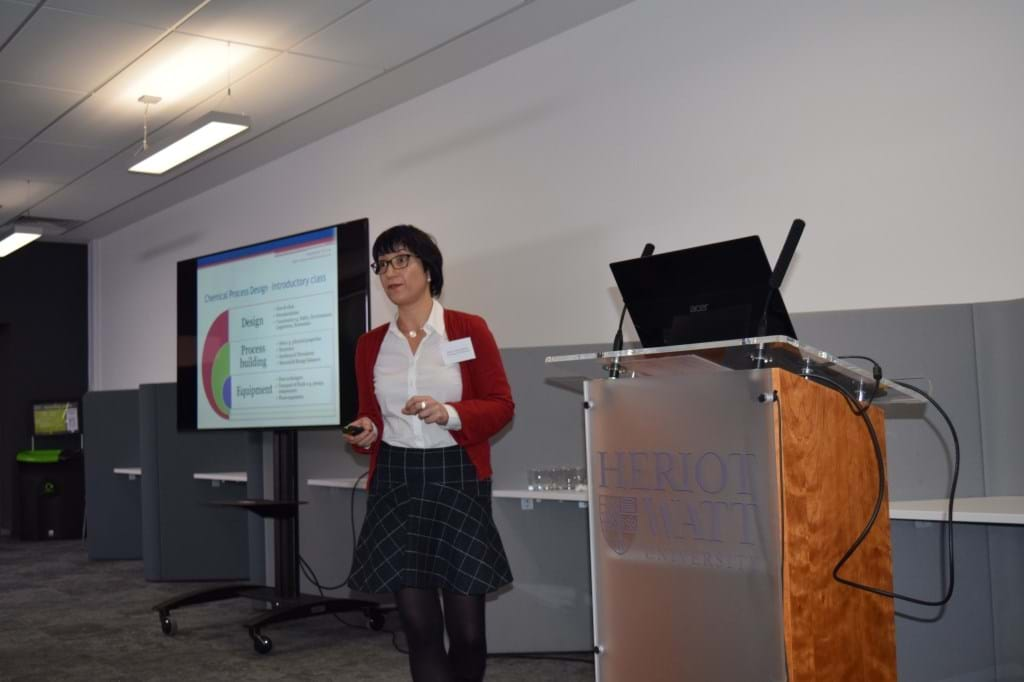
Esther Ventura-Medina, Senior Lecturer at the University of Strathclyde, gave a presentation on Chemical Process Design - challenges and opportunities of using problem-based learning (PBL). She spoke about problem-based learning (PBL) which is a student-centred approach based on the premise that a process of enquiry drives learning, and learning occurs through interactive collaboration with members of a team.
Diogenes Reyes Viviescas from the University of Strathclyde gave a presentation on his research, Development of learner autonomy in student-centred learning environments in engineering. His research examines how teams of engineering students study, and analysing the differences between self-regulated learning and socially-shared regulated learning. This research is focused on investigating students’ behaviours and performance features when dealing and undertaking PBL) activities in a chemical engineering course.
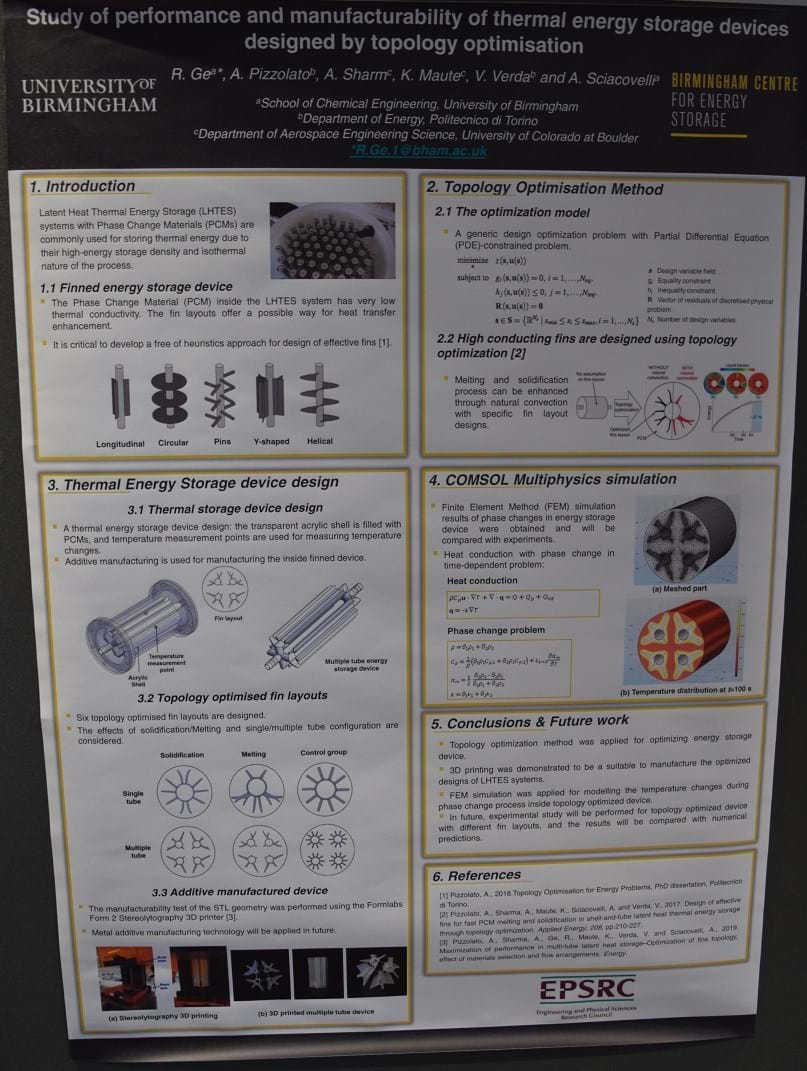
Second place went to Giovanni Meridiano at UCL, for Flow Characteristics in Newtonian and non-Newtonian stirred solid-liquid suspensions. The third prize went to Alice Wilson at the University of Sheffield for her poster Autonomous motion of ellipsoidal micro-swimmers in a self-generated flow regime.
Prizes were also presented to the best presentations delivered in each of the conference’s sessions.
At the closing ceremony IChemE Fellow Professor Graeme White, from the School of Engineering & Physical Sciences, Institute of Mechanical, Process & Energy Engineering at Heriot-Watt University, thanked all the attendees and exhibitors on a great conference. He then handed the baton over to Bradford University, who will be next year’s host for ChemEngDay.

For us at IChemE, it was great to see so many people from the academic community keen to share knowledge on their research and show that chemical engineering really does matter.
Hope to see you next year at Bradford!